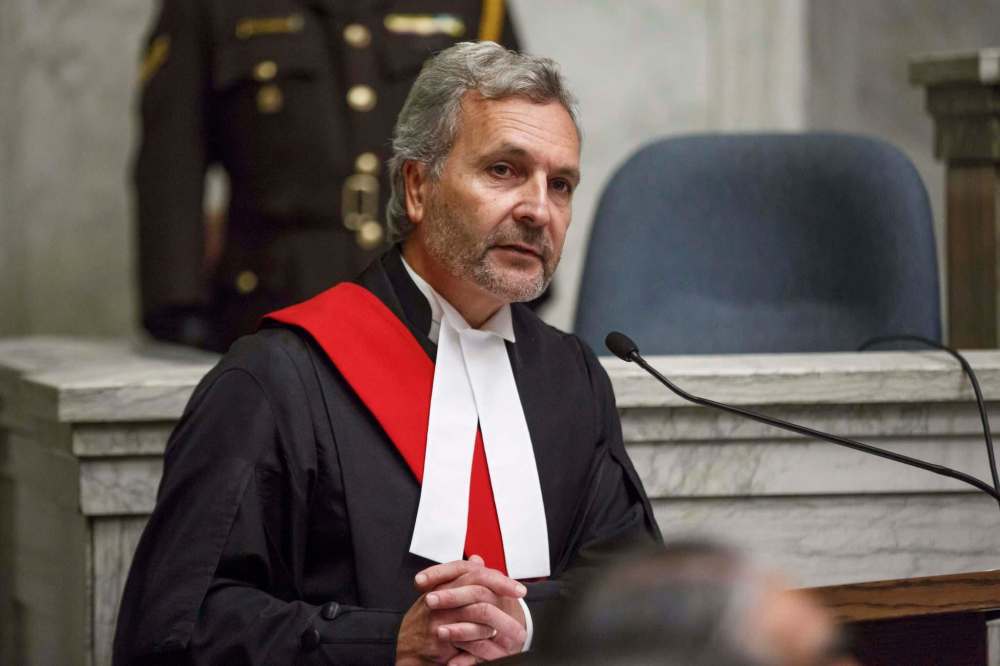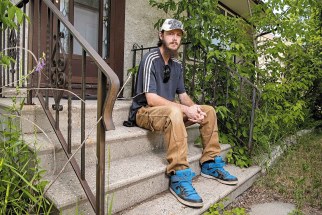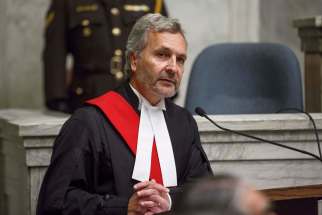An egregious assault on the judicial process
Read this article for free:
or
Already have an account? Log in here »
To continue reading, please subscribe:
Monthly Digital Subscription
$0 for the first 4 weeks*
- Enjoy unlimited reading on winnipegfreepress.com
- Read the E-Edition, our digital replica newspaper
- Access News Break, our award-winning app
- Play interactive puzzles
*No charge for 4 weeks then price increases to the regular rate of $19.00 plus GST every four weeks. Offer available to new and qualified returning subscribers only. Cancel any time.
Monthly Digital Subscription
$4.75/week*
- Enjoy unlimited reading on winnipegfreepress.com
- Read the E-Edition, our digital replica newspaper
- Access News Break, our award-winning app
- Play interactive puzzles
*Billed as $19 plus GST every four weeks. Cancel any time.
To continue reading, please subscribe:
Add Free Press access to your Brandon Sun subscription for only an additional
$1 for the first 4 weeks*
*Your next subscription payment will increase by $1.00 and you will be charged $16.99 plus GST for four weeks. After four weeks, your payment will increase to $23.99 plus GST every four weeks.
Read unlimited articles for free today:
or
Already have an account? Log in here »
Hey there, time traveller!
This article was published 13/07/2021 (1610 days ago), so information in it may no longer be current.
Let’s start with this baseline assertion: there is no justification.
It was revealed on Monday that a firm representing seven Manitoba churches that are challenging the constitutionality of the province’s public-health orders hired a private investigator to tail the judge who is adjudicating that case. Despite the man responsible for the hiring calling it simply “an error in judgment,” this egregious assault on the judicial process must be denounced in the strongest possible terms and should be followed by corrective action that reflects the gravity of the offence.
Court of Queen’s Bench Chief Justice Glenn Joyal said Monday that he had discovered he was being followed by an unknown individual who turned out to be a private investigator. He was followed to his private residence and to his cottage; a teenage boy rang the doorbell of his city residence when he was not at home, purportedly in an effort to confirm it was the judge’s address.

After Justice Joyal’s revelation, John Carpay, an Alberta-based lawyer and president of the Justice Centre for Constitutional Freedoms — which is representing the seven rural-Manitoba churches in court — admitted he had hired the private investigator in an effort to catch the judge contravening provincial pandemic restrictions.
The obvious question, then, is to what end? In a statement released after his apology, Mr. Carpay said the broader intent of hiring investigators to surveil public officials — which apparently was done unilaterally, without the knowledge of the Justice Centre’s board of directors — was to expose hypocrisy on the part of officials who “do not feel compelled to abide by the same restrictions which they impose on other citizens.”
Citing Alberta Premier Jason Kenney’s controversial “Sky Palace” dinner as an example, Mr. Carpay said his organization had been told “Manitoba’s leadership were similarly breaching public health regulations.”
That might, in the logic of an individual looking to shame government officials who betray their own health orders, justify assigning an investigator to follow a politician in order to expose some level of policy-making hypocrisy. But hiring a P.I. to follow a judge — not just any judge, but the judge handling the case that you are currently arguing in court — suggests very few possible motivations other than an effort to intimidate the judge in order to affect the outcome of the case.
Mr. Carpay, upon being caught in the act, argued that intimidation played no part. “I care deeply about the administration of justice, including public perceptions,” he insisted, adding later that “the observation and surveillance of government officials is not intended in any way, shape or form to influence an outcome in a court case.”
Mr. Carpay is a lawyer. As such, he must necessarily have an understanding of the judicial process and the code of conduct that prohibits lawyers from seeking to influence cases in any way other than by presenting arguments in open court. His after-the-fact attempt to defuse the controversy, and Tuesday’s statement that he has taken “an indefinite leave” from his Justice Centre role, do not and should not bring this matter to an end.
The law societies of Manitoba and Alberta are reportedly determining whether professional codes have been breached and sanctions are warranted. An Ottawa human-rights lawyer has also filed a professional-misconduct complaint with both provincial law societies, calling this “one of the most egregious examples of professional misconduct that I can think of in the 20 years that I’ve been a lawyer.”
It is, in no uncertain terms, an outrage. Such an assault on the judicial process cannot be allowed to go unpunished.











